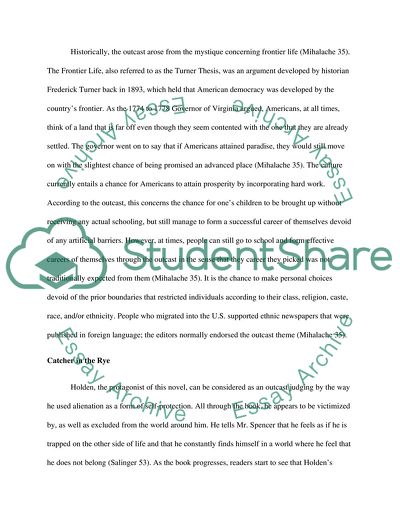Cite this document
(“Outcast Theme in American Literature Essay Example | Topics and Well Written Essays - 2000 words”, n.d.)
Retrieved from https://studentshare.org/english/1644760-examine-the-importance-of-the-outcast-theme-in-american-literature
Retrieved from https://studentshare.org/english/1644760-examine-the-importance-of-the-outcast-theme-in-american-literature
(Outcast Theme in American Literature Essay Example | Topics and Well Written Essays - 2000 Words)
https://studentshare.org/english/1644760-examine-the-importance-of-the-outcast-theme-in-american-literature.
https://studentshare.org/english/1644760-examine-the-importance-of-the-outcast-theme-in-american-literature.
“Outcast Theme in American Literature Essay Example | Topics and Well Written Essays - 2000 Words”, n.d. https://studentshare.org/english/1644760-examine-the-importance-of-the-outcast-theme-in-american-literature.


